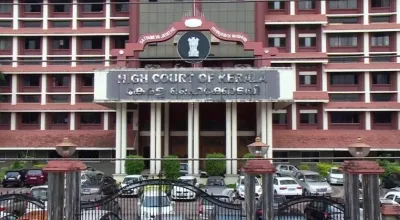Can Customers in Brothels Be Prosecuted Under the ITP Act?

Synopsis
Key Takeaways
- Kerala High Court ruling on brothel customers.
- Inducement to prostitution under ITP Act.
- Sex workers viewed as victims, not commodities.
- Importance of accountability in human trafficking.
- Dismissal of charges against the petitioner under Sections 3 and 4.
Kochi, Sep 9 (NationPress) The Kerala High Court has determined that individuals engaging in sexual services within brothels can face legal action under the Immoral Traffic (Prevention) Act, 1956 (ITP Act). The court asserted that compensation for such services constitutes inducement to prostitution.
Justice VG Arun remarked that sex workers should not be viewed as mere commodities and that those who seek their services are not simply 'customers' but rather active participants in a system of exploitation.
"A person utilizing the services of a sex worker in a brothel cannot be described as a customer. The payment made serves only as an inducement, forcing the sex worker to act against their will, frequently under conditions of trafficking and coercion," the court stated.
This ruling emerged from a case linked to a police raid in 2021 at Peroorkada, Thiruvananthapuram.
During the operation, law enforcement discovered the petitioner with a woman in one room, while another man was found with a woman in another.
Investigations unveiled that two individuals were managing the brothel, procuring women for prostitution, and collecting fees.
While the brothel operators faced charges under Sections 3 and 4 of the ITP Act (operating a brothel and profiting from prostitution), the petitioner was also charged under Section 5(1)(d) (inducing a person into prostitution) and Section 7 (prostitution in or near public places).
In contesting the case, the petitioner argued that he was merely a customer and that his actions did not equate to managing or running prostitution activities.
He referenced prior rulings to support his claim that utilizing the services did not constitute inducement.
The prosecution, however, maintained that the determination of liability should be based on the evidence presented before the trial court.
After considering arguments from both sides, the court clarified that while Sections 3 and 4 are applicable to brothel operators, seeking sexual services at a brothel constitutes inducement under Section 5(1)(d).
"If such an individual is labeled as a customer, it undermines the fundamental purpose of the Act, which is to combat human trafficking and safeguard those compelled into prostitution," the court noted.
Consequently, proceedings against the petitioner under Sections 3 and 4 were dismissed.
Nevertheless, the court affirmed his prosecution under Sections 5(1)(d) and 7 of the ITP Act.









